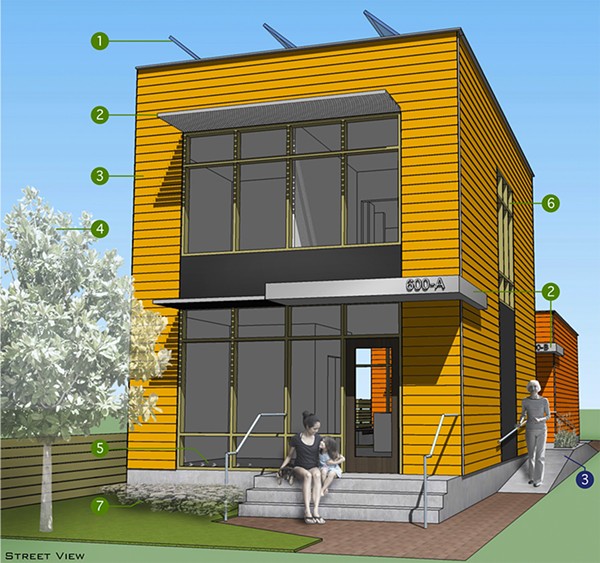Disruptive Design Competition
When Thinkinc. conceptualized, named and helped design the architecture competition Disruptive Design: Reimagining Chicago in 2017 with the Chicago Housing Policy Task Force, we couldn’t wait to see what kinds of affordable homes entrants would come submit.
We’re proud that Disruptive Design isn’t just about replenishing Chicago’s desperately needed stock of affordable housing. This competition is about envisioning innovations in live-work capabilities, construction materials and methods, accessibility, and opportunity for aging in place.
 Disruptive Design, launched in October 2018, is creating new ideas for affordable homes and live/work spaces that are affordable to build just under $200,000 for a single-family home and just under $300,000 for a two-flat and that make it easier for families to own homes and build wealth. These residences would follow current Chicago construction and zoning codes to create single-family homes and two-flats, as well as income-generating living spaces for caterers, day care owners, hair stylists and other entrepreneurs who would become the engines of a renewed middle class.
Disruptive Design, launched in October 2018, is creating new ideas for affordable homes and live/work spaces that are affordable to build just under $200,000 for a single-family home and just under $300,000 for a two-flat and that make it easier for families to own homes and build wealth. These residences would follow current Chicago construction and zoning codes to create single-family homes and two-flats, as well as income-generating living spaces for caterers, day care owners, hair stylists and other entrepreneurs who would become the engines of a renewed middle class.
Three finalists were chosen in March 2019, and the winner will get $20,000 and works with a developer to make their design a reality, and actually change someone’s life. And, I hope, change how we think about affordable housing.
After working with NHS to conceptualize the Chicago Housing Policy Task Force as a tool to bring together key affordable housing organizations to raise the profile of affordable housing, we are excited to see this competition come to life. And we were happy to have helped develop the partnership with the American Institute of Architects’ Chicago chapter that brought them to the table to manage the program.
We can’t wait to see a family move into one of these homes someday.
Crain’s Chicago Business: Will one of these three designs be the 21st century’s bungalow?
Chicago Reader: Survival of the starter home: Could a design contest help replenish Chicago’s affordable housing stock?


